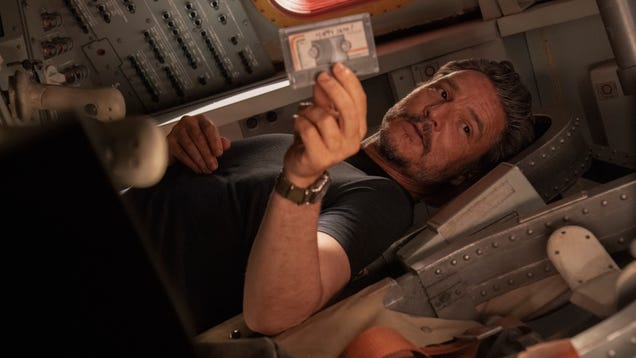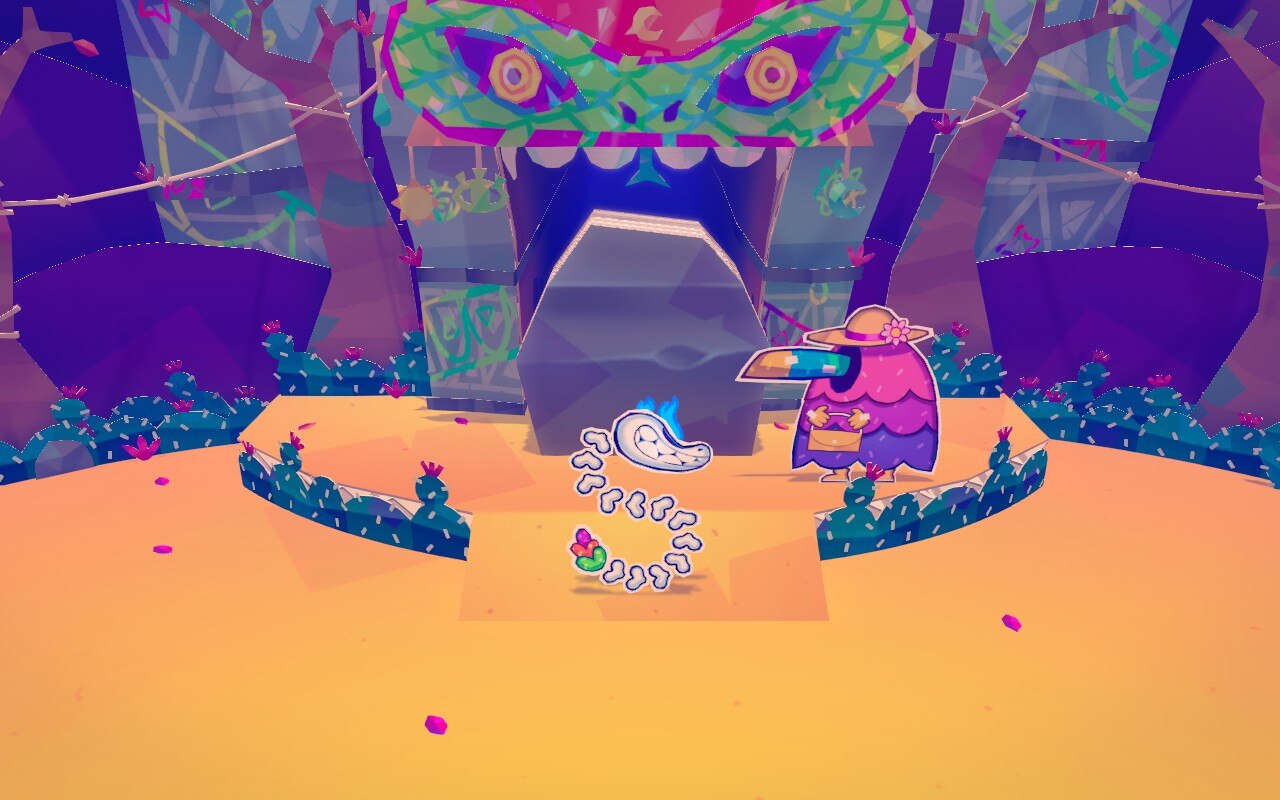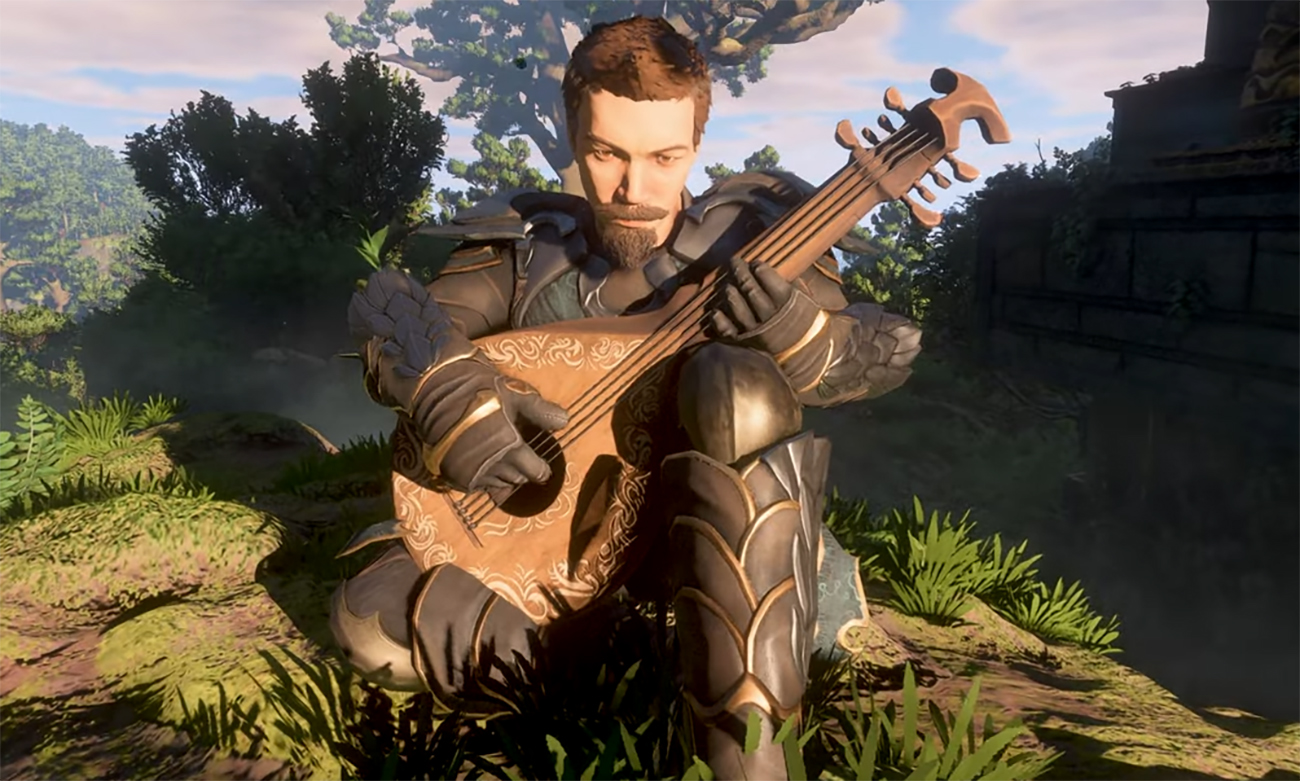
Crimson Desert is like God of War and Dragon's Dogma Had a Baby | gamescom 2024
The bosses in Crimson Desert are powerful. I mean really powerful. As the formidable Staglord grabbed me by the ankle and hurled me into a wall, the bone-crunching impact reminded me of how The Stranger’s blows catapulted Kratos through tree trunks and mountains in God of War. This intense, deity-like physicality lends Crimson Desert’s battles a sense of genuine spectacle – these are the gladiator battles of myths.
During an hour-long hands-on session at gamescom 2024, I was able to go toe-to-toe with three different bosses, each of which showcased a different side of this fantasy action RPG’s approach to battle. The first, the aforementioned Staglord, is perhaps the most simple (although that does the towering, barbarian-like warrior a disservice.) He’s a relentless attacker, charging across the battlefield like a bullet train that can suplex you at its final destination. But, despite his endless strength and capacity to throw you like a baseball, he’s only human. I force distance between us, quickly firing explosive arrows to knock him out of his attack pattern and open up a window to bury my blade into his back.
The Staglord proves a real challenge of a fight. Crimson Desert is not even remotely a soulslike, but it’s not afraid to make you work really hard for victory. I spend much of the lengthy fight learning the complexities of the combat system. There’s no lock-on, so I have to be mindful of where I position my character and where his sword will land. Rolling forward allows me to instantly follow up with a sweep-kick that surprises my foe, and then hitting both the light and heavy attack buttons together unleashes a wide, particle-effects spraying strike that cleaves a chunk out of the Staglord’s health bar. All this is speedy without sacrificing weight. It feels fantastic, but it’s also easy to let things run away from you – I soon realise I need to be chowing down on health-restoring food with addiction-like frequency.
Crimson Desert is not even remotely a soulslike, but it’s not afraid to make you work really hard for victory.
With the Staglord defeated, I take his mighty sword and shield and move on to the next fight. The demo skips ahead in the story, meaning I sadly don’t get to experience any non-boss gameplay, and throws me into snow-coated lands. Here, my gruff protagonist is looking for children who have seemingly been sacrificed to some kind of mountain god. Such a ‘god’ turns out to be the White Horn; a sort of antlered abominable snowdeer that showcases just how different each of Crimson Desert’s bosses can be. This colossal creature moves like a bucking bronco and its galloping charges cause the mountains around us to break out in miniature avalanches that leave me temporarily frozen in place. Thankfully, after striking it so much that its white fur is stained almost completely red, I’m able to clamber onto its back in the fight’s second phase and stab away at its neck. The moment had me recalling my battles with towering monsters in Dragon’s Dogma 2 earlier this year.
Each boss has three health bars, with each one eliminated increasing the intensity of the fight. But where the Staglord and White Horn scraps seemed to escalate much like many other action RPG boss battles – the enemy gets angrier and starts using more devastating attacks – my final battle, against the Queen Stoneback Crab, demonstrated Crimson Desert’s ambition to create memorable moments through very different mechanics.
The Queen Stoneback Crab is colossally big. It fills the screen. And, smartly, you can’t fight it by just hacking away at its shins. Instead, the battle is a puzzle set piece that’s clearly inspired by Shadow of the Colossus. I clamber onto the Crab’s stony shell and grab onto the grass and flora that forms its ‘fur’, holding on for dear life while pulling myself up towards a trio of rock formations. Using a special punch skill I shatter each of the rocks to expose a weak point that I plunge my blade into. Each opened wound causes a geyser of water to blast out, which not only provides a visual spectacle but also throws me high into the air. From above I’m able to float down, almost Zelda paraglider-style, and plan how to tackle the next stage. Now I’m tasked with destroying the pottery-like crown at the peak of the Crab’s mountain-like shell – a task a Pearl Abyss employee explained to me is completed by swinging Spider-Man-style from a web and colliding with the pottery at full speed. Seriously. I’m not sure how I’d have figured that out on my own, but I’m pleased such a mechanic exists. It’s all delightfully bonkers.
My hour-long session isn’t quite long enough to try all four bosses the demo has to offer, but a video presentation provided a quick insight into the only one I missed: the Reed Devil, a weird little guy who creates copies of himself that can only be defeated by destroying totems that are built during the battle. Along with the three I fought, all four bosses make a promise that Crimson Desert features an array of creative, unique centrepiece battles. If they’re all like this, then Pearl Abyss really could have something special on its hands.
I’m similarly impressed by the combat system’s fundamentals. Yes, it’s all quite fantasy RPG 101 – bows, swords, shields, parries – but it’s delightfully aggressive and properly impactful. There’s a seemingly deep combo system, too, and it’s because of that I wished the demo had a section that was a little more relaxed for me to sample. The heat of a relentless boss battle isn’t quite the space to learn and perfect button sequences, but I’ve got a good feeling you can pull off some cool stuff based on the combos I did learn.
Of course, I also wish I’d seen more so I could say if Crimson Desert’s adventure chops are as strong as its boss battles. What little dialogue and story there was to introduce each boss didn’t suggest anything remotely close to, say, The Witcher 3. But, even if its writing proves lacking, a strong approach to exploration and world design could carry it far. Hopefully Pearl Abyss will showcase that soon, because so far Crimson Desert’s mix of God of War’s weighty impact and Dragon’s Dogma’s creative spectacle has me very excited indeed.
Matt Purslow is IGN’s Senior Features Editor.








